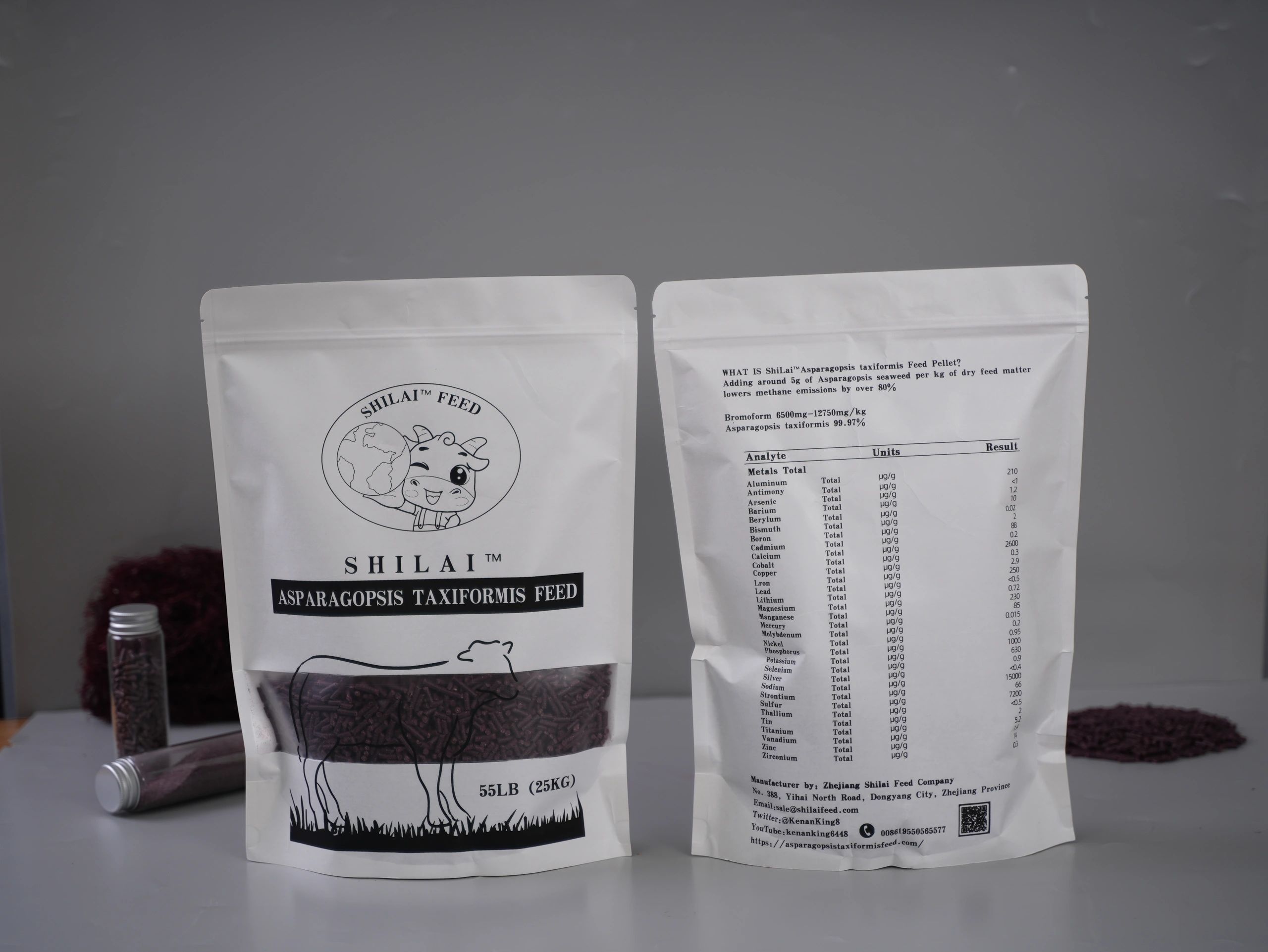
The agricultural industry is a key emitter of greenhouse gases, largely due to emissions from farmed animals.
The climate impact of methane surpasses that of carbon dioxide on a per-molecule basis, underscoring the urgency to reduce it.
Interest is growing in Asparagopsis taxiformis, a red seaweed, for its potential to substantially cut enteric methane in ruminants.
A distinctive compound present in the alga curbs methanogenic activity in the rumen and reduces emitted methane volumes.
Incorporating Asparagopsis taxiformis into animal diets has shown experimental success, suggesting an actionable strategy to shrink the carbon footprint of animal farming.
- Asparagopsis taxiformis also contributes extra advantages that can support sustainable farming transitions.
- Improved feed conversion and vitality
- Potential to stimulate rural economies via seaweed value chains
Even though extensive research and validation are ongoing, Asparagopsis taxiformis appears poised to be a meaningful mitigation option.
Exploring the Commercial Promise of Asparagopsis taxiformis Powder as a Feed Ingredient
A powdered or concentrated form of Asparagopsis taxiformis has the potential to reshape animal feed approaches and outcomes.
The seaweed offers a combination of nutritive and bioactive properties that benefit animal performance.
Blending A. taxiformis powder into rations has produced measurable methane cuts in research and supplies supportive nutrients.
Further rigorous research is crucial to optimize dosage, processing, and long-term safety to unlock full commercial potential.
Asparagopsis taxiformis and the Next Era of Sustainable Animal Production
This red marine species is being highlighted for its capacity to reduce the ecological burden of routine livestock operations.
Integrating the algae into feeds may allow producers to substantially reduce on-farm methane emissions and environmental impacts.
The literature points to additional gains in animal health and output that may accompany methane mitigation using Asparagopsis.
More work to verify long-term safety and logistical viability is necessary, though early findings look promising.
Using Asparagopsis as a Feed Additive to Reduce Methane
Asparagopsis is recognized as a strong candidate for reducing the methane burden from ruminant livestock.
Asparagopsis contains active molecules that alter rumen microbial activity and limit methane generation.
- Research trials have demonstrated that Asparagopsis can reduce methane by substantial percentages in controlled studies.
- Deploying Asparagopsis as a dietary additive represents an environmentally conscious mitigation tactic.
- Farmers and producers are increasingly exploring the adoption of Asparagopsis in feeding programs.
Asparagopsis: The Marine Ingredient Shaping Sustainable Livestock Systems
Ocean-sourced Asparagopsis taxiformis is gaining recognition for its capacity to reduce methane in ruminant digestion.
- Studies incorporating Asparagopsis have recorded meaningful methane decreases, signaling potential for environmental impact reduction.
- The technology points to reconciling productive agriculture with lower emissions and improved sustainability.
As climate policy and industry responses develop, Asparagopsis offers a promising option to reduce livestock methane emissions.
Maximizing the Methane-Reduction Potential of Asparagopsis taxiformis Feed Products
Investigations focus on ideal extraction, stabilization, and dosing to maximize the methane mitigation benefits of A. taxiformis.
The Science Behind Asparagopsis taxiformis's Methane-Lowering Effects
Research explains the effect as chemical interference with rumen methanogens, reducing methane synthesis during digestion.
The compound bromoform within the seaweed is a principal inhibitory agent against methanogenesis, and researchers are studying its dynamics and safety.
Integrating Asparagopsis into Feed Formulations for Sustainable Farming
Asparagopsis offers both nutritive value and active molecules that together justify its consideration for feed formulations.
Asparagopsis integration may improve nutrient density, digestive efficiency, and deliver ancillary antimicrobial or immunomodulatory effects.
Leveraging Asparagopsis taxiformis for Environmental Gains in Food Production
Asparagopsis taxiformis represents an emerging, nature-based intervention to lower agricultural emissions and support sustainable food systems.
- In addition, the seaweed contributes essential nutrients and beneficial compounds to diets.
- Scientists and commercial stakeholders are exploring applications of Asparagopsis in aquaculture and terrestrial agriculture.
Embedding the seaweed in feed strategies could help diminish the overall environmental impact of farming operations.
Animal Health and Productivity Gains from Asparagopsis Feed Inclusion
The seaweed presents a promising feed additive option with potential co-benefits for emissions and animal performance.
Evidence points to improved digestive nutrient capture and feed efficiency with Asparagopsis, which may raise productivity.
Research suggests potential antioxidant and immunological benefits that could improve overall animal welfare.

Increasing focus on sustainable production makes Asparagopsis a compelling candidate as evidence and supply chains mature.
Asparagopsis in Methane-Cut Feeds to Help Achieve Carbon Goals
Agriculture is under increasing demand to cut emissions, and Asparagopsis represents a practical route to reduce methane contributions.
- The scientific consensus points to the seaweed’s compounds as inhibitors of rumen methanogenesis, limiting methane output.
- The experimental record includes promising findings of large methane cuts when Asparagopsis is incorporated into feeds.
The method represents an innovative feed solution with the potential to change how food systems manage climate impacts.